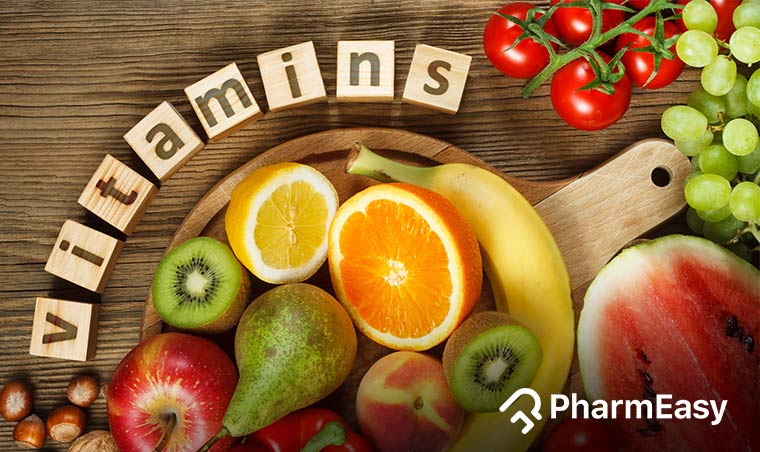
It is well known that sodium intake can lead to serious health consequences. The amount of sodium a person consumes is closely related to their risk for cardiovascular disease and hypertension, two diseases associated with high blood pressure. Salt intake should be reduced by limiting salty snacks as well as reducing salt added to meals. It is important to reduce your intake of sodium from processed foods and fast food. Below are some ways to reduce sodium intake:
Your water retention can be increased by increasing your sodium level in your bloodstream. This causes your bloodstream to expand, and it will expand. The risk of developing heart disease is increased when blood vessels are over saturated. Plaque can build up and stretch, making them more vulnerable to damage. Additionally, too much sodium will cause your body to feel bloated. There are many health effects that too much sodium can have on your body. It is crucial to limit your sodium intake to avoid developing serious health problems.

Too much sodium is dangerous for your health. Your body needs a certain amount of sodium to function properly, but too much can cause health problems. Research shows that sodium intake is linked to higher blood pressure. It is important to limit sodium intake, even though it is necessary for nerve and muscle function. It is best to keep your daily intake under two thousand mgs.
Too much sodium can cause heart problems and brain damage. High sodium diets are a risk factor in cardiovascular disease in the United States. The Centers for Disease Control and Prevention recommend Americans not consume more than 1,500mg of sodium daily. For most people, this should be less than two thousand mg per day. However, some foods are more sodium-rich than others.
Too much sodium can have adverse effects on the heart and other organs. In fact, sodium can have many benefits for your health. A person with high blood pressure, for example, should reduce their sodium intake by 2,000 mg daily. Low blood pressure can also be beneficial. Reduce salt intake to lower your risk of getting heart disease. This is just one example. Limiting sodium is essential if you wish to enjoy healthy living.

Too much sodium consumption continues to cause more deaths. High levels of sodium are increasing the chances of developing heart disease or high blood pressure. By reducing sodium intake, you can reduce the risk of heart problems. Reduce salt intake by avoiding salty food. Canned vegetables and legumes must be rinsed before use. If you don't like to wash your vegetables and legumes before consuming them, you can try rinsing them first.
FAQ
What are the best foods to avoid when trying weight loss?
Trans fats should be avoided. Trans fats can raise LDL (the unhealthy) cholesterol levels while lowering HDL levels (the good).
Trans fats are commonly found in fast food, deep-fried and packaged baked goods as well snack cakes and other processed foods.
These unhealthy fats also contribute to inflammation, leading ultimately to heart disease or diabetes.
Artificial sweeteners are also to be avoided. Artificial sweeteners may increase your chance of getting cancer.
These chemicals are found in many products, including soft drinks, candy bars, chewing gum, as well as candy bars. These chemicals are also found in meat, poultry, eggs, and other foods.
Artificial sweeteners include saccharin and sorbitol.
The American Heart Association advises against using these chemicals, as they could damage DNA.
Egg is good for men?
All nutrients are contained in the egg. It also helps maintain strong bones, a healthy heart and lungs, and stable blood pressure.
Eggs are rich in protein, vitamin A, B12 and D,E,K, as well as vitamins A,B12 and D,E,K, calcium, iron, phosphorus, manganese, copper, magnesium, and riboflavin.
Egg yolks are high in cholesterol. However, the egg yolk is low in cholesterol. Eggs contain less saturated fat than most other foods.
They are also low on calories and sodium. They are also very versatile because you can cook them any way you want. They can be fried, poached, scrambled, boiled, hard-boil and baked.
They are very nutritious and easy-to-prepare.
Aim to eat two whole eggs per week. Avoid eating eggs.
Essential nutrients are found in eggs. Try adding them to your daily diet today.
Do I need to exercise every morning?
No! At least 30 minutes moderate-intensity exercise five days per week is a good goal. It means you need to exercise hard enough or walk fast enough that you are slightly out-of- breath.
How many calories per day should I consume?
This varies from person to person. On average, you need 2000 to 2500 calories per days. The factors that determine how many calories are needed for you include your gender, age, height, activity level, lifestyle, and gender.
Can I consume alcohol while working out?
Yes. Alcohol can increase energy expenditure, speed up healing time, and reduce soreness.
Alcohol also increases insulin sensitivity, making it easier to absorb glucose.
However, alcohol can cause dehydration, which can slow down your metabolism. Also, alcohol can reduce testosterone production, which may lead to lower muscle-building potential.
This is why women shouldn't have alcoholic drinks before exercising. Women who have consumed a lot of alcohol should wait at most 24 hours before working out.
Women who are nursing should avoid alcohol as much as possible.
Men should limit their alcohol intake to just one drink each day.
Statistics
- Cardmembers earn 5% Back at Amazon.com with a Prime Credit Card. (amazon.com)
- Are You One of the 20% of Guys (mh.co.za)
- Get free shipping and 25% off today. (healthline.com)
- According to the American Academy of Dermatology (AAD), men over 50 are at a heightened risk of developing it. (healthline.com)
- The PRS enabled risk stratification for overall prostate cancer and lethal disease with a four-fold difference between men in the highest and lowest quartiles (HR, 4.32; 95% confidence interval [CI], 3.16-5.89). (pubmed.ncbi.nlm.nih.gov)
External Links
How To
What nutrients do men need each day?
Men require daily nutrition for healthy growth and development. The body requires vitamins, minerals, proteins, carbohydrates, fats, water, fiber, and other essential elements.
Males also require specific nutrients at certain times of the day. To give you an example, the body uses energy it receives from food to make hormones and antibodies. When you awake, protein is used by your body to build muscles or repair damaged tissue.
Your body stores extra energy as glycogen and breaks down fat at night. Your body has less energy but still requires enough nutrients during this time. You can have a snack at night if you feel hungry.
When you work out, you need adequate levels of carbs and protein to fuel your muscles. After a hard workout, muscle soreness may occur.
To avoid this, you need to eat carbs and proteins within two hours of training. Your body will break down stored glycogen to provide glucose for energy.
Also, protein must be consumed immediately after your workouts. This will prevent muscle tissue from being damaged while you sleep.
Your body can produce lactic acid during intense physical activity. It is a form of lactic acid that builds up in the bloodstream. This causes fatigue. Avoid this by eating foods rich in carbohydrates such as fruits or vegetables.
Carbohydrates give your body the energy it needs to recover from strenuous exercise.
You may also want to include lean meats and fish, as well as yogurt, cheese, yogurt, beans and nuts in your diet.
All of these foods have high-quality protein. Protein promotes muscle growth and repairs damaged tissues. It also provides the amino acids your body needs to produce sex hormones and testosterone.
For healthy skin, hair and joints, it is important to eat enough fats. Healthy men require between 20% and 35% of total caloric intake from fat.
Fat helps protect your heart health and prevents cancer. It keeps your brain healthy and functioning well.
Most of the fat you need can be obtained from vegetable oils, including sunflower oil (or soybean oil), peanut oil, peanut oil, soybean oil, and peanut oil.
These oils contain high levels of monounsaturated fat acids (MUFAs). MUFAs help lower cholesterol and reduce inflammation. They protect cells against damage from free radicals.
Saturated Fats (SFAs), which are mostly found in animal products like meat, butter, and dairy products, include LDL ("bad") cholesterol. SFAs are known to raise LDL ("bad") cholesterol and raise triglycerides. They can also increase weight and reduce belly fat.
Polyunsaturated oils (PUFAs), are found in plant-based foods like nuts, seeds and vegetable oils. PUFAs reduce inflammation and improve cardiovascular function. They also help control blood sugar and cholesterol.
Low HDL ("good") cholesterol is a common cause of erectile dysfunction in men. The consumption of saturated fats raises bad cholesterol which in turn lowers good cholesterol.
Men who eat lots of red meat or pork can develop prostate problems. This is because these foods contain high amounts of nitrates. High temperatures can cause nitrates to become nitrosamines. These compounds can cause cancer.
Nitrites and other harmful chemicals are common in processed meats. They should be avoided.
The American Heart Association recommends that you limit your intake of red meat to 2 per week. Instead, choose poultry and fish, legumes, tofu or whole grain bread as your main source of protein.